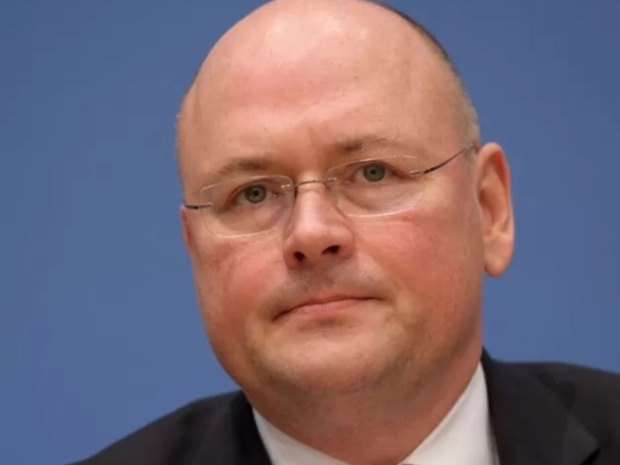Arne Schönbohm had led the Federal Cyber Security Authority (BSI) - charged with protecting government communications - since 2016, but German media claim that he had links with Russian intelligence services.
The interior ministry is investigating allegations made against him but has found the evidence compelling enough to have fired him.
Before leading the BSI, Mr. Schönbohm had helped set up and run the Cyber Security Council Germany, a private association which advises business and policymakers on cybersecurity issues. He is said to have maintained close ties to the association and attended their 10th anniversary celebrations in September.
One of the association's members was a cybersecurity company called Protelion, which was a subsidiary of a Russian firm reportedly established by a former member of the KGB honoured by President Vladimir Putin. Protelion was ejected from the association last weekend, and Cyber Security Council Germany says the allegations of links to Russian intelligence are untrue.
The German media outlet Der Spiegel earlier reported that Schönbohm had requested formal disciplinary proceedings to be opened against him, after receiving no "feedback" from the government after the initial accusations.
Berlin is said to be increasingly concerned that its critical infrastructure could be targeted by Russian intelligence as it steps up its support for Ukraine. Last week, the defence ministry announced it planned to deliver four anti-air defence systems to Kyiv. A single IRIS-T unit is said to be capable of defending an entire city from air assaults.
Germany has been increasingly embarrassed by its links to Putin. Former German Chancellor Gerhard Schröder, who was a long time cheerleader for Putin, is believed to have directed German energy policy towards Russia which has placed the country in a vulnerable position this winter. He joined the board of directors at Gazprom, the state-owned Russian energy company behind the Nord Stream 2 pipeline. This year it was reported that Schroeder was paid nearly $1 million per year by Russian energy companies.




